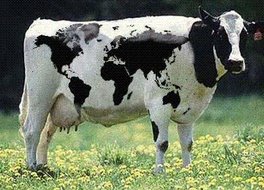I meant to write this about 2 weeks ago, when the linked NYT article was fresh and free. Oops.
Fascinating thought: is math gender neutral? According to many men, apparently, it isn't. They seem to think that men are naturally better with numbers than women (in general; of course there are exceptions).
This is important to me because a good deal of epidemiology is numbers and number-crunching. While the pure mathematicians may compare our work to actuarial science, it has its own beauty of formulas, proofs, etc. The beautiful, however, is rarely as useful as the ugly day-to-day applied work; hence, the insulting reference to cubicle mice and their charts. Yes, we do a lot of statistics. We also model.
Digression aside, is mathematics inherently male? I can't really agree with that assessment, but I have no proof. Neither do they, though, and it hasn't stopped them from acting on their belief. Women in the hard sciences do have a harder time than men, and I don't think its just ability. There is bias against the feminine viewpoint, most likely historical in origin. Modern science grew from a source that was even more predominantly male, so it took on male characteristics: single-mindedness, straightforwardness, a boys-club camraderie in conferences and collaborations. Does that mean that science itself, or the math behind it, must be male? Regardless of the answer to the previous question, does that give adequate support for a field producing male PhDs and female lab techs?
Women are discouraged from entering hard science (medicine doesn't count; maternal instincts are in our favor there now). Women are certainly rare in high-level science and mathematics, in comparison to men. Even in my generation, graduate groups are overwhelmingly male on the scientific side. This goes back quite a while; I recently learned (and not from the wiki, don't worry) that Florence Nightingale was rebuffed in an attempt to fund a chair in applied statistics at Oxford, despite being a fellow of the Royal Statistical Society. She was a pioneer of epidemiology whose mother didn't want her to study math. Are we producing even more short-sighted mothers and fathers these days, or have we changed the persona of math and science? I'm not optimistic.
Tuesday, October 17, 2006
Subscribe to:
Post Comments (Atom)

No comments:
Post a Comment